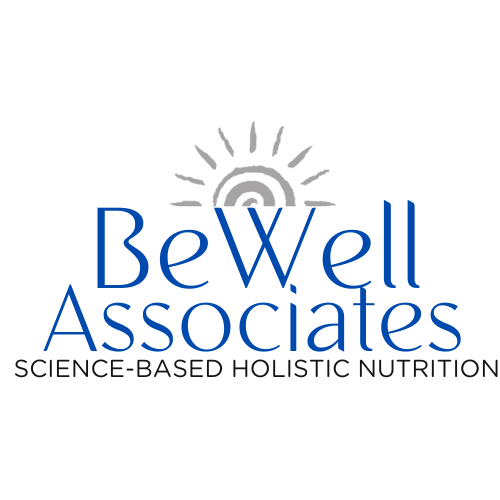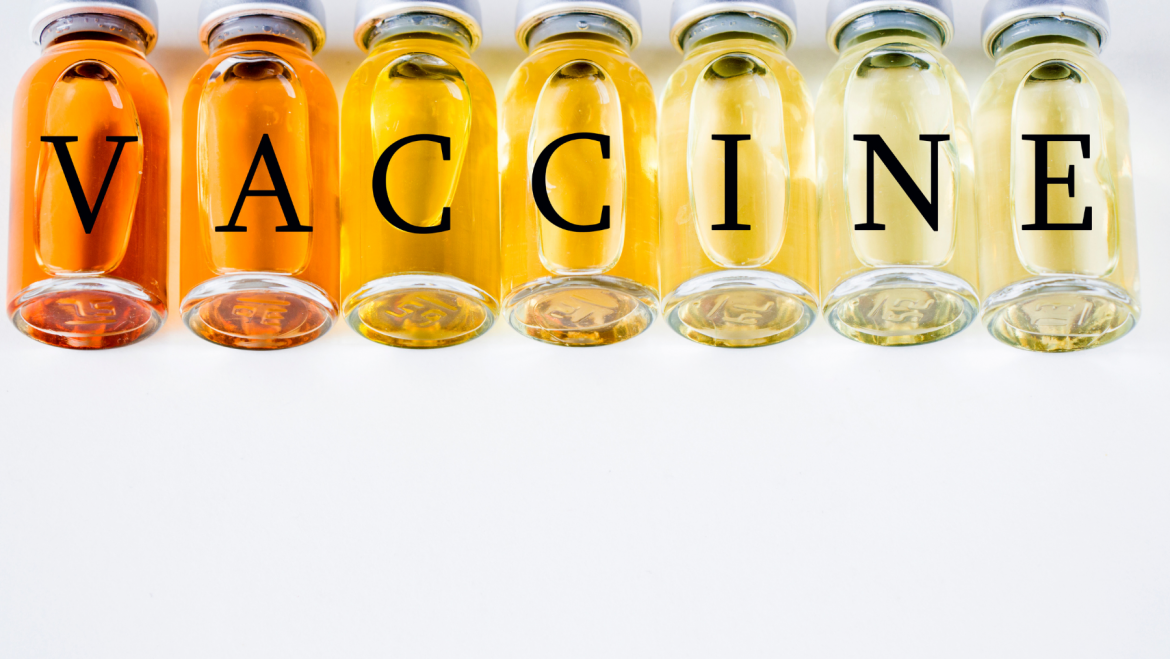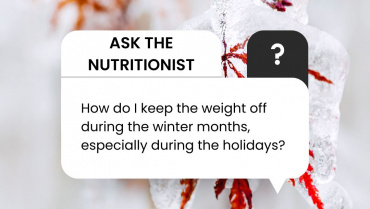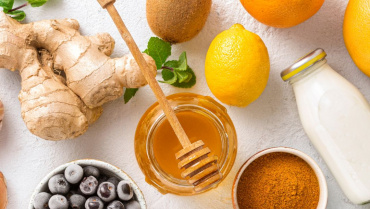When considering COVID19 vaccination, it’s important to prepare your body for receiving the vaccine in order to reduce the risk of having a reaction. In this post we will explain why people have reactions and what you can do to prevent them.
The part of a vaccine that helps increase our immune response is called the “adjuvant.” Adjuvants are ingredients that elicit a strong response in the body. Below is some information regarding PEG, which is the known adjuvant in the current COVID19 vaccines from Pfizer and Moderna.
Adjuvants are included in vaccines to stimulate the body’s immune response to the virus so that the body produces antibodies. Antibodies are a way the body “remembers” the virus so that we are better prepared to fight the virus the next time we are exposed to it. This helps protect us against severe effects from future infections and is the reason why we get vaccinated.
This information is especially important if you have histamine or oxalate intolerance, allergies, or autoimmunity.
The Adjuvant in the Pfizer and Moderna COVID Vaccines: Polyethylene Glycol (PEG)
The adjuvant used in the COVID-19 vaccine is Polyethylene Glycol or PEG, the same class of chemical used in Miralax, the common laxative. We know that PEG, which is highly water-soluble, leaves the body in 24-48 hours. However, research suggests that PEG may break down into oxalic acid and increase the risk of forming oxalate crystals. There are many conditions made worse by oxalate crystal formation. These include arthritis, interstitial cystitis, recurring UTIs, fibromyalgia, kidney stones or kidney failure, and many others.
Fortunately, there are dietary changes you can make to reduce the burden on your body and to protect the kidneys from toxic overload by avoiding high oxalate foods for a good week prior to and two weeks after inoculation.
Avoid these foods that are high in oxalate before and after vaccination:
- Wheat
- Soy
- Nuts
- Peanuts
- Spinach
- Beets
- Swiss chard
- Sweet potatoes
- Chocolate
- Beer
Oxalic acid is formed from the metabolism of PEG by alcohol dehydrogenase (ADH), which is an enzyme that converts PEG into a more toxic oxidized form of PEG. ADH activity is increased by Vitamin B3. This means that taking vitamin B3 may inadvertently increase oxalic acid after exposure to PEG. Therefore, it is important to avoid taking vitamin B3 such as NAD, Niacin, Niacinamide, Nicotinamide Riboside, and Nicotinamide Mononucleotide one week before vaccination and two week after vaccination.
Oxalate is also formed from ascorbic acid or vitamin C, as a natural byproduct of vitamin C metabolism.Excessive intake of vitamin C supplements may increase the risk of elevated oxalate levels in the urine, potentially leading to the formation of kidney stones in susceptible individuals. Therefore, it is important not to OVER supplement with vitamin C before or after vaccination for this reason, especially if you have a history of kidney stones. Choose supplementation that does not exceed 500-1000 mg per day. Oranges, clementines, strawberries, broccoli, and bell peppers, if tolerated, are also a good way to get food-based vitamin C rather than relying on supplementation alone.
While high oxalate foods and B3 are important to avoid, there are several supplements that can help your body properly metabolize PEG and remove excess oxalic acid safely. Vitamin B6 and glycine play a key role in removing oxalates from the body. Vitamin B6 reduces oxalates by serving as a cofactor for the enzyme alanine-glyoxylate aminotransferase (AGT). Adequate levels of vitamin B6 help maintain the activity of AGT, which is crucial for reducing the levels of oxalic acid.
Glycine is an amino acid that is also essential for the proper metabolism of oxalates. When glycine is abundantly available, it prevents the accumulation of oxalic acid precursors, which reduces the risk of oxalate crystal formation.
Other support for oxalate metabolism includes Lactobacillus gasseri and magnesium citrate. L. gasseri is a commensal bacteria that breaks down oxalic acid in the gut and magnesium citrate can then bind oxalate to safely remove it from the body.
Histamine reactions are also caused by PEG after vaccination:
Research has found that PEG can cause histamine reactions in some susceptible individuals. These reactions can be show up as either immediate responses such as anaphylaxis, swelling, tachycardia, dizziness, or hives directly after exposure to PEG or as a delayed sensitivity response, such as flushing, itching, and congestion that occur hours to days later.
One way to help reduce the risk of histamine reactions is to follow a lower histamine diet, which includes limiting the intake of the following foods for one week before and 2 weeks after vaccination:
- Aged, cured, smoke and processed meats
- Shellfish
- Aged cheeses
- Fermented foods and drinks (kefir, kombucha, kimchi, etc)
- Spicy foods and chili pepper
- Papaya
- Pineapple
- Alcohol
While on a lower histamine diet, choose meat, poultry, eggs, and low mercury fish that is fresh, organic, pasture raised, and grass fed. Eating organic as much as possible also reduces your exposure to glyphosate (Roundup), which is known to cause immune reactions and increase the toxic burden on the liver.
To help offset this histamine response, certain nutrients such as vitamin B2, vitamin B6, and the Diamine Oxidase (DAO) can be very helpful to decreasing histamine reactions after vaccination.
Additionally, NAC can provide powerful liver support, aid in detoxification, promote restful sleep, and boost the immune system. NAC is the precursor to glutathione, which is the master antioxidant and a key regulator of inflammation.
Read more on glyphosate in foods HERE.
Summary of suggestions for 1-2 weeks before and after vaccination:
- Eliminate foods high in oxalic acid and histamine
- Add Vitamin B6 (P5P) 30-50 mg
- Add Glycine 2-3 grams
- Add Vitamin C 500-1000 mg
- Add Riboflavin (B2) 100 mg
- Add NAC (or glutathione) 600 mg
- Choose a probiotic with L. gasseri
- Consider DAO supplementation if highly histamine intolerant.
- Consider magnesium citrate 400 mg especially if you have a history of constipation or kidney stones .
Order your supplements from our online stores or contact the BeWell office to set up an appointment for specific nutritional support around the vaccine. Our clinicians can also help you determine whether you are sensitive to oxalates and histamines.





Add Comment